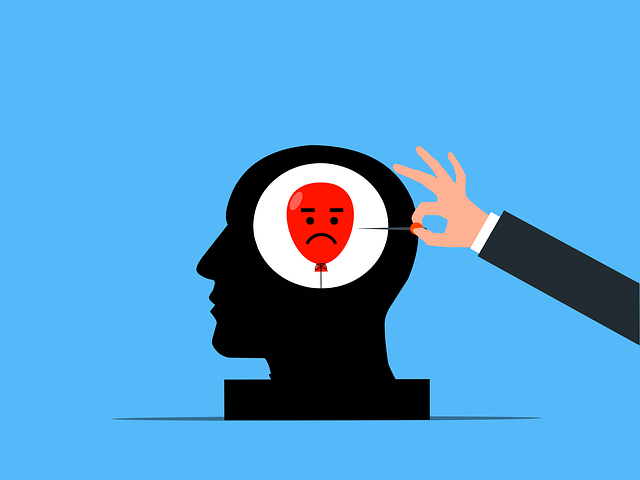Control is a fundamental aspect of human life, as it allows individuals to regulate their environment and establish order. However, when control becomes excessive and rigid, it can be detrimental to an individual’s wellbeing.
Control freaks are people who have an insatiable need for power and authority over themselves and others, often resulting in negative outcomes such as anxiety, stress, and strained relationships.
The purpose of this article is to examine the impact of being a control freak on one’s personal and professional life. Through exploring the psychological mechanisms that drive controlling behavior, we aim to provide insights into how individuals can recognize and overcome their tendencies towards excessive control.
By understanding the consequences of being a control freak and learning strategies for managing this behavior, individuals can improve their overall quality of life both personally and professionally.
Understanding Excessive Need For Control
 The excessive need for control is a complex issue that affects many individuals. Recognizing patterns of this behavior can be difficult, as it often presents itself in subtle and insidious ways. It may manifest as micromanaging others, being excessively rigid with rules or schedules, or feeling uncomfortable when things don’t go according to plan.
The excessive need for control is a complex issue that affects many individuals. Recognizing patterns of this behavior can be difficult, as it often presents itself in subtle and insidious ways. It may manifest as micromanaging others, being excessively rigid with rules or schedules, or feeling uncomfortable when things don’t go according to plan.
Understanding the root causes of an individual’s need for control is crucial in overcoming triggers that perpetuate this behavior. For some, it may stem from past experiences where they felt powerless or out of control. They may feel that exerting control over their environment gives them a sense of safety and security. For others, it could be related to underlying anxiety or fear.
Regardless of the cause, excessive control can have negative consequences on one’s life and relationships. It can lead to feelings of isolation and loneliness as others may avoid interacting with someone who constantly needs to be in charge.
Additionally, it can create unnecessary stress and tension in situations where flexibility would be more appropriate.
Overcoming the desire for control requires self-reflection and a willingness to acknowledge and address any underlying issues contributing to this behavior. Therapy or counseling can also provide valuable support during this process. With time and effort, individuals struggling with excessive need for control can learn healthier coping mechanisms and improve their overall quality of life.
The Impact Of Control On Personal Life
Control is a natural human instinct that influences the way individuals interact with their environment. However, when control becomes excessive or compulsive, it can have negative impacts on personal life.
Controlling relationships are an example of how this behavior can be destructive. In such relationships, one partner exerts excessive influence over the other’s thoughts and actions. This type of control often leads to feelings of anxiety and lack of autonomy for the person being controlled.
Control and anxiety are closely linked because excessive control triggers feelings of powerlessness in those who experience it. These feelings may result in a sense of uncertainty about what will happen next, leading to heightened levels of anxiety.
For instance, someone who is constantly worried about every detail in their life may become anxious due to fears surrounding potential outcomes if they lose control. Anxiety then reinforces controlling behaviors as people attempt to manage these emotions by exerting more control over their environment.
The impact of excessive control on personal life extends beyond relationships and into various aspects such as work-life balance, social interactions, and hobbies/interests. Excessive controls lead to rigid routines where everything must be done according to predetermined rules or plans. This rigidity makes it difficult for individuals to adapt to changing circumstances and limits their ability to explore new experiences or opportunities outside their comfort zone.
To combat the negative effects of excessive control on personal life, here are three strategies:
1) Try mindfulness techniques: Mindfulness helps individuals focus on the present moment instead of worrying excessively about future outcomes.
2) Seek professional help: Seeing a therapist trained in cognitive-behavioral therapy (CBT) can help you identify problematic thought patterns related to your need for control.
3) Engage in activities that promote creativity: Creative outlets like painting or writing allow individuals to express themselves freely without fear of failure or judgment.
In summary, excessive control has detrimental impacts on personal life through its association with controlling relationships and increased anxiety levels. Limiting controlling behaviors can improve one’s quality of life, resulting in more opportunities for new experiences and personal growth.
The Impact Of Control On Professional Life
The previous section discussed the impact of control on personal life. However, the effects of being a control freak are not limited to one’s personal sphere but extend to their professional life as well.
Control in leadership and team dynamics is crucial for organizational success, but too much of it can have detrimental consequences. Leaders who exhibit excessive control may create an environment that hinders creativity and innovation. Employees may feel micromanaged, leading to decreased motivation and job satisfaction. This can ultimately result in high turnover rates and a negative impact on the organization’s bottom line.
Additionally, leaders who insist on complete control may miss out on valuable input from their subordinates, which could lead to poor decision-making. In team dynamics, excessive control can also be problematic. When one member dominates the group through controlling behavior, others may begin to disengage or withdraw altogether. Collaboration becomes difficult when one person insists on having all the answers and making all decisions without considering other perspectives. The end result is often reduced productivity and less effective teamwork.
It is important for leaders and team members alike to strike a balance between exerting appropriate levels of control while still allowing room for autonomy and collaboration. Leaders should communicate clear expectations and goals while encouraging employee input and feedback. In team settings, individuals must learn how to effectively communicate their ideas while listening actively to others’ opinions.
Excessive control in leadership and team dynamics has significant implications for organizational success. It is crucial for individuals within these contexts to find a healthy balance between assertiveness and flexibility so that everyone can contribute meaningfully towards achieving shared objectives.
The Psychological Mechanisms Behind Controlling Behavior
Metaphorically speaking, a person who is obsessed with control may feel like they are holding the reins of their life tightly in their grip. However, this illusion of power can quickly turn into an addiction that consumes them and ruins their relationships.
Control addiction is a term used to describe individuals who have an excessive need for control over every aspect of their lives.
Controlling behavior often stems from anxiety and fear of uncertainty. The constant need to be in charge provides a sense of security and stability, allowing individuals to cope with stressors more effectively. This coping mechanism becomes problematic when it starts interfering with daily functioning and damages personal relationships.
Research has shown that controlling behavior is associated with high levels of anxiety and low self-esteem.
The psychological mechanisms behind controlling behavior involve cognitive distortions such as black-and-white thinking or catastrophizing events that could happen if things don’t go according to plan. These distorted thought patterns reinforce the belief that only through strict control can negative outcomes be prevented.
Thus, people with control issues tend to micromanage situations, becoming rigid in their expectations and unable to adapt to changing circumstances.
Breaking free from the cycle of control requires recognizing the underlying emotions driving this behavior pattern. Accepting vulnerability and relinquishing some control can help individuals develop healthy coping strategies while improving interpersonal relationships.
Moreover, seeking professional counseling services can provide support by offering insight into why one feels compelled to exert so much control over their life circumstances without judgment or criticism.
Overall, addressing compulsive tendencies towards being overly controlling involves identifying triggers causing these behaviors while developing alternative methods for managing anxiety other than relying on absolute control over everything within your environment- which often leads down paths leading nowhere fast!
Recognizing And Overcoming Excessive Control
Excessive control is a behavior that can ruin one’s life. It can lead to feelings of anxiety, stress, and frustration.
Recognizing triggers that cause excessive control is the first step towards overcoming this problem. Triggers can be anything from feeling overwhelmed by responsibilities or experiencing fear of failure.
Once one has recognized their triggers, they can start working on overcoming their anxiety. This involves developing healthy coping mechanisms such as mindfulness meditation or cognitive-behavioral therapy.
Mindfulness meditation helps individuals become aware of their thoughts and emotions without judgment while cognitive-behavioral therapy focuses on changing negative thought patterns.
Another way to overcome excessive control is through self-reflection. Individuals should take time to reflect on past experiences where they may have exhibited controlling behavior and identify what caused it. By understanding why they feel the need to control situations, individuals can work towards addressing these underlying issues.
It is important for individuals with excessive control tendencies to seek professional help if needed. A therapist can provide a safe space for individuals to discuss their fears and concerns while providing guidance on how to overcome them.
Tips for Overcoming Excessive Control
– Practice mindfulness meditation
– Try cognitive-behavioral therapy
– Reflect on past experiences
– Seek professional help if needed
– Learn to let go of things outside of your control
Overall, recognizing and overcoming excessive control takes time and effort but it is possible with dedication and support from loved ones or professionals. Developing healthy coping mechanisms, reflecting on past behaviors, seeking professional help when necessary are all steps in the right direction towards living a happier more fulfilling life free from the constraints of excessive control.
Strategies For Managing Controlling Behavior
Having recognized the signs of excessive control, it is essential to move forward with implementing strategies for managing controlling behavior. While acknowledging that changing habits can be challenging, incorporating mindfulness techniques and communication skills in daily interactions can help individuals become more aware of their actions.
Mindfulness techniques such as meditation, breathing exercises, or yoga can assist in developing a non-judgmental awareness of thoughts and emotions. By observing these internal experiences without reacting impulsively, individuals can develop emotional regulation skills and reduce stress levels.
Additionally, practicing mindfulness regularly helps increase self-awareness and empathy towards others’ perspectives, which can improve communication.
Communication skills play a vital role in managing controlling behavior as they enable individuals to express themselves effectively while being respectful of others’ boundaries. Active listening involves paying attention to verbal and non-verbal cues to understand someone’s perspective better. Furthermore, assertive communication allows individuals to communicate their needs clearly without infringing on other people’s rights.
Through effective communication methods, individuals can foster healthier relationships built on mutual respect and understanding.
Incorporating these two strategies into one’s life requires patience and commitment; however, the benefits are worth it. Practicing mindfulness techniques coupled with improved communication skills reduces anxiety levels related to feeling out-of-control situations. Ultimately leading to happier, healthier relationships with oneself and those around them.
As we close this section discussing strategies for managing controlling behavior through mindfulness techniques and communication skill building – remember that change takes time but putting in the effort will lead to positive results over time.
Improving Quality Of Life Through Control Management
Effective control management is essential in maintaining an individual’s quality of life. However, being a control freak can have detrimental effects on one’s well-being. It is important to understand that there exists a fine line between exercising appropriate levels of control and succumbing to excessive micromanagement.
Individuals who exhibit high levels of controlling behavior often struggle with relinquishing power to others, causing strain within interpersonal relationships. Often, this stems from underlying feelings of insecurity or fear of failure.
In contrast, individuals who prioritize flexibility demonstrate an ability to adapt and adjust more easily when faced with challenges or unexpected situations. It is crucial to find balance between control and trust in both personal and professional settings.
Striving for complete control over everything may result in missed opportunities for growth and development as well as increased stress levels. Conversely, placing too much trust without implementing any controls could lead to negative consequences such as financial loss or physical harm.
It is necessary to manage our impulses towards controlling behaviors by identifying the root cause behind them through introspection and therapy if needed. By learning how to strike a balance between control and flexibility while fostering mutual trust in relationships, we can improve our overall quality of life significantly.
This approach enables us not only to handle adversity but also allows us greater autonomy over our lives ultimately leading to better outcomes in all facets of living.
Frequently Asked Questions
Can Control Freak Behavior Be Genetic?
Control freak behavior can be attributed to both nature and nurture. The interplay of genetic predisposition and environmental factors such as upbringing, societal norms, and life experiences contribute to the development of this personality trait.
Nature vs. nurture: What causes control freak behavior? While some studies suggest that certain gene variants may increase one’s likelihood of exhibiting controlling behaviors, others propose that early childhood experiences shape a person’s need for control.
It is important to recognize the difference between being responsible versus being overly controlling in order to maintain healthy relationships with oneself and others. As psychological writers, we must approach this topic objectively and refrain from personal biases or judgments.
Are There Any Positive Aspects To Being A Control Freak?
Individuals who display control freak tendencies may experience both benefits and drawbacks in their personal and professional lives. On one hand, their attention to detail and desire for order can lead to increased productivity and efficiency.
However, excessive need for control can also result in micromanagement, causing stress and conflict within interpersonal relationships. In the workplace, strategies such as delegating responsibilities and practicing effective communication can help manage these tendencies.
Additionally, seeking therapy or learning relaxation techniques like meditation can aid in reducing anxiety associated with relinquishing control. While there are some positive aspects of being a control freak, it is important to recognize when this behavior becomes detrimental to oneself or others.
Can Therapy Help Individuals Overcome Their Need For Control?
Therapy can play a significant role in helping individuals overcome their need for control. Control related anxiety is often the driving force behind an individual’s desire to be in control of situations and people around them.
To address this issue, therapists use various techniques such as mindfulness meditation, cognitive-behavioral therapy, and exposure therapy to help clients understand the root cause of their anxiety and develop healthy coping mechanisms.
Letting go techniques are also employed by therapists to assist individuals in relinquishing control over things they cannot change. Through therapy sessions, patients learn how to evaluate their thoughts and emotions objectively while developing emotional regulation skills that allow them to let go of what they cannot control.
How Can Loved Ones Help Someone With Controlling Behavior?
Loved ones of individuals with controlling behavior can provide support by offering coping strategies. Ways to support someone struggling with control include:
– Listening without judgment
– Reminding them of their strengths and abilities
– Encouraging self-care practices such as exercise or meditation
It is important for loved ones to set boundaries and communicate clear expectations while also remaining empathetic towards the person’s struggles. Additionally, seeking professional help through therapy or counseling may be beneficial in addressing underlying issues contributing to the controlling behavior.
Can Excessive Control Lead To Physical Health Problems?
Studies have shown that excessive control can lead to physical health problems.
According to a survey conducted by the American Psychological Association, stress is one of the leading causes of illness and chronic diseases in America today.
Individuals who exhibit controlling behavior may experience high levels of stress due to their need for perfectionism and micromanagement.
This stress can manifest itself physically, resulting in headaches, stomach issues, and even heart disease.
Stress management techniques such as relaxation exercises and coping mechanisms like meditation or therapy may be helpful in reducing the negative impact of excessive control on an individual’s physical health.
Conclusion
Control freak behavior is a complex issue that can significantly impact an individual’s life.
Although some studies suggest that genetic factors may contribute to this personality trait, there are also positive aspects associated with being in control.
However, excessive control can cause problems for individuals and their relationships.
Fortunately, therapy has proven effective in helping people overcome controlling tendencies.
Loved ones can offer support by encouraging open communication and seeking professional help when necessary.
Moreover, it is essential to note that excessive control can lead to physical health problems such as anxiety disorders or hypertension.
While the desire for control may be innate in some individuals, it does not have to ruin their lives or the lives of those around them.
The key is finding a balance between taking charge where appropriate and letting go when necessary.
Through self-awareness and professional intervention, one can learn to manage their controlling tendencies effectively.
By doing so, they will improve their mental and emotional wellbeing while fostering healthier relationships with others.









